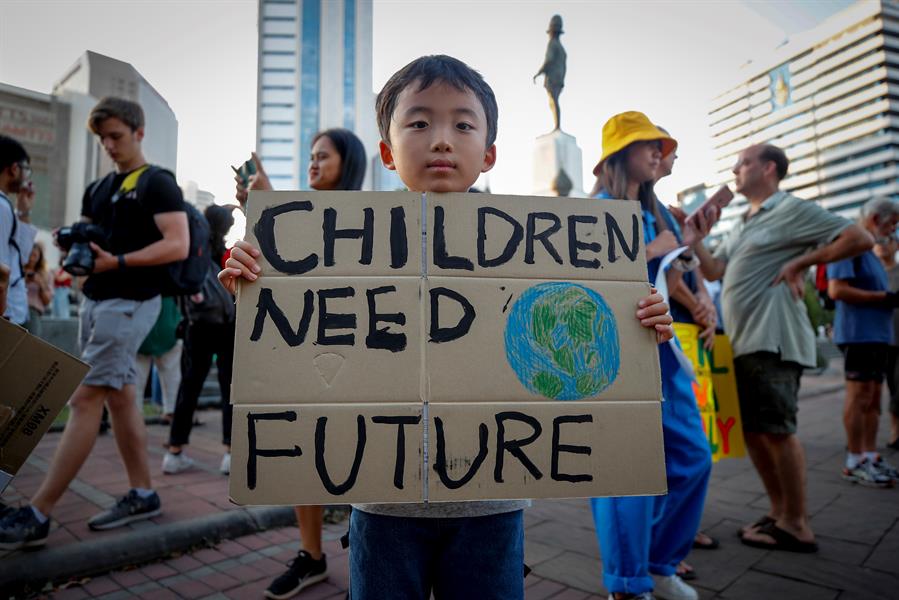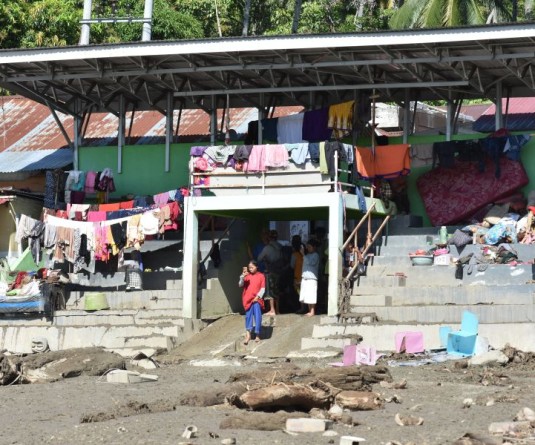Climate-fuelled disasters displace 20 million people a year, says Oxfam

A young boy holds a sign outside a park during a climate change strike in Bangkok, Thailand, 29 November 2019. EPA-EFE FILE/DIEGO AZUBEL
London, December 2 (efe-epa).- Disasters caused by the climate emergency were the main cause of internal displacement worldwide over the last decade, forcing more than 20 million people to leave their homes each year, Oxfam said Monday.
The organization presented its report "Forced from Home," coinciding with the United Nations Climate Summit (COP25) in Madrid from Dec. 2-13, and in which issues such as financial support to communities and displaced people affected by the climate crisis will be addressed.
The Oxfam document warned that "people are seven times more likely to be internally displaced by cyclones, floods and wildfires as they are by earthquakes and volcanic eruptions, and three times more likely than by conflict."
According to the NGO, which has analyzed the data from 2008 to 2018, people who are most vulnerable to displacement are citizens of poor countries, which, despite being those "who bear least responsibility for global carbon pollution, are most at risk.”
Oxfam said the impact that the climate crisis has on the world is unequal and the population of low and lower-middle income countries, such as India, Nigeria and Bolivia, are more than four times more likely to be displaced by extreme weather disasters than people living in wealthy countries such as the United States.
Around 80 percent of all people displaced in the last decade live in Asia, which is home to 60 percent of the world’s population and over a third of people living in extreme poverty globally, it said.
In addition, seven of the 10 countries where there is a greatest risk of internal displacement as a result of extreme weather events are Small Island Developing States.
"On average nearly five percent of the population of Cuba, Dominica and Tuvalu, were displaced by extreme weather each year in the decade between 2008 and 2018. This is equivalent to almost half the population of Madrid… annually," Oxfam said, adding that Small Island Developing States’ per capita emissions are around "a third of those in high-income countries.”
The acting executive director of Oxfam International, Chema Vera, said that the "poorest people in the poorest countries are paying the heaviest price."
The UN conference is expected to conclude the first revision of the Warsaw Mechanism on Loss and Damage at the climate summit while developing countries will be "pushing for the establishment of a new fund to help communities recover and rebuild after climate shocks.”
"Governments can and must make Madrid matter. They must commit to faster, deeper emissions cuts and they must establish a new ‘Loss and Damage’ fund to help poor communities recover from climate disasters," Vera said.


